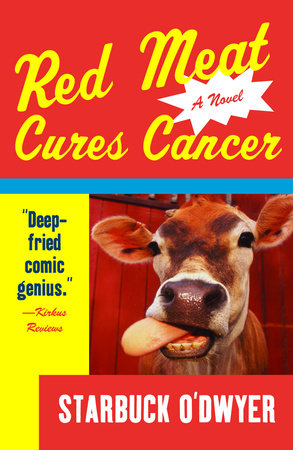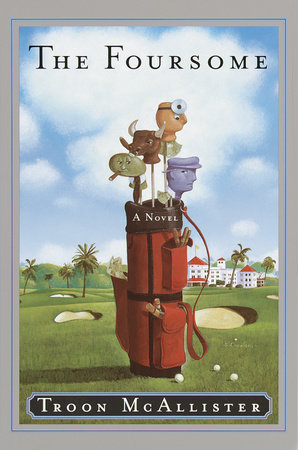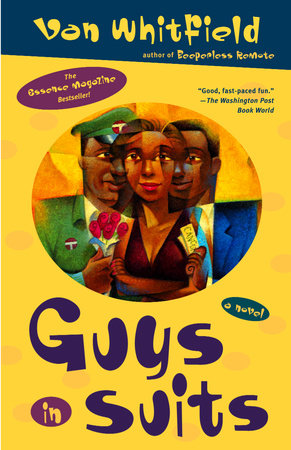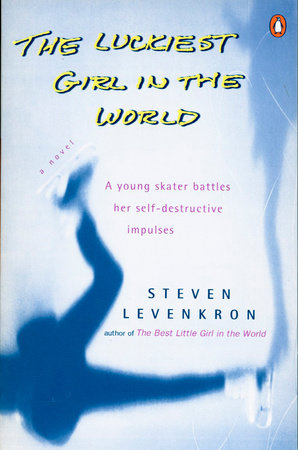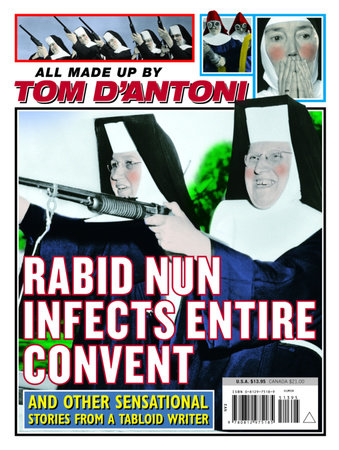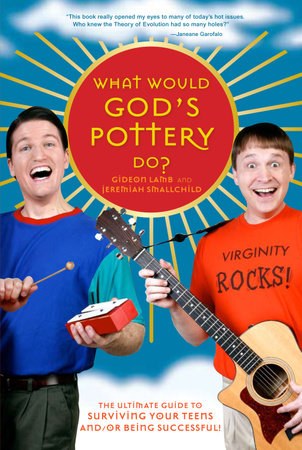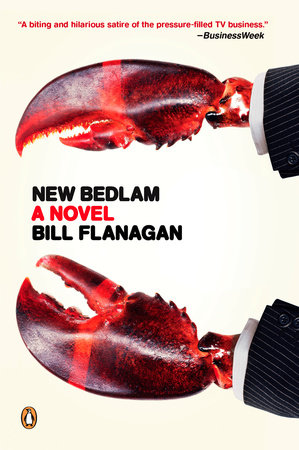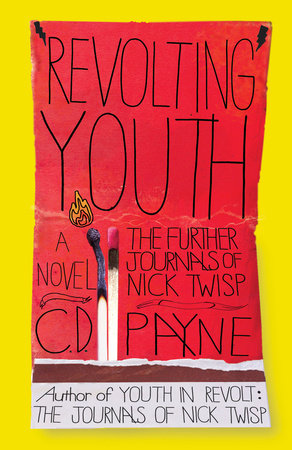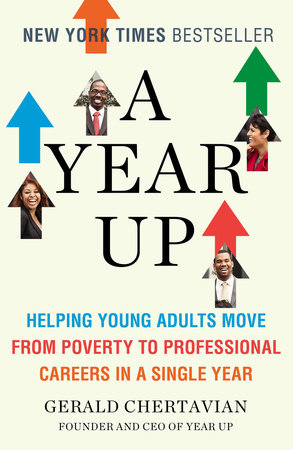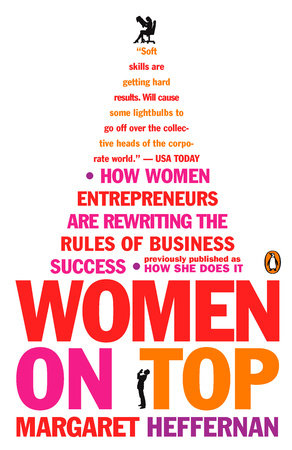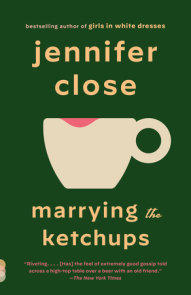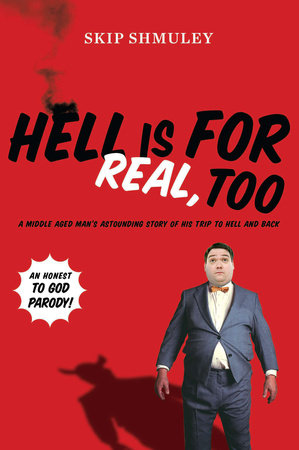Author Q&A
An Interview with Starbuck O’Dwyer, author of RED MEAT CURES CANCER
Q: Where does the name Starbuck come from?
A: Starbuck is my given middle name and my paternal grandmother’s maiden name. The Starbuck family was one of the original families that settled Nantucket Island and was known for its involvement in the whaling industry. So much so that when Herman Melville wrote Moby Dick, he named the first mate on the Pequod, Starbuck. Years later, the company Starbucks took its name from Melville’s book, leaving those of us in the original Starbuck family to wonder what might have been if only whale blubber had become as popular as coffee.
Q: RED MEAT CURES CANCER has a unique comic tone and style. How would you describe it?
A: The tone and style are highly irreverent but not for its own sake. Overall, the book is a black comedy and, more specifically, a comic novel about contemporary American life that spoofs countless topics including corporate greed, marketing, golf, plastic surgery, gambling, Civil War battle reenactments, Hollywood, local news, religion, politics, Silicon Valley, fast food lawsuits, pornography and on and on. It’s fast-paced, politically incorrect and intended to make people laugh and think while taking them on a wild and unpredictable ride.
Q: What’s the story about?
A: It centers on Sky Thorne, a middle-aged executive for an outlaw fast food chain called Tailburger, whose boss threatens his job and pension if he doesn’t raise the company’s piddling one percent market share to a healthy five percent by the end of the year. Since Sky has spent nearly twenty years working for the company, he’s desperate to hang on long enough to get his retirement money. The story is primarily about the unraveling of Sky’s personal and professional life as he struggles to reconcile all the morally reprehensible things he does to sell more deep-fried hamburgers and beef-flavored shakes, with who he wants to be as a person and as a role model for his children.
Q: Beef-flavored shakes?
A: Yes, Tailburger has a beef-flavored shake called the Tailfrap. They also have a baboon burger that they serve with ribs called “Bab on a Slab. It’s a pretty food-forward menu.
Q: What interests you about using outrageous comical elements to create a morality tale?
A: Morality tale sounds a bit too serious a description given the book’s over-the-top tone, but there’s no question that the comedies I enjoy personally often have some kind of moral underpinning to them where the laughter comes in part from the discomfort we feel when characters face difficult decisions in their lives In this age of ENRON and other massive corporate collapses, we’ve seen how the unethical decisions of one or two people can bring down an entirecompany, and I find myself increasingly interested in examining the pressure that people feel to be successful in today’s world, the reasons behind it, and the things they’re willing to do to achieve and maintain their success. My writing reflects my attempt to create stories and situations that are first and foremost funny, but that also have substance and meaning readers can relate to and appreciate, and make their own decisions about.
Q: Whenever Sky Thorne reaches a fork in the road, he goes the wrong way–but you still find yourself rooting for him. Do you think of him as an anti-hero?
A: In many ways, yes. Sky Thorne is the embodiment of the modern man who finds himself caught between his desire to fulfill his material needs, including his financial obligations to his kids, and his desire to do the right thing. He sees earning his pension as the key to achieving the financial freedom he needs to lead a better life and to make better decisions but, until that pension is secure, anything goes, from encouraging people to gorge themselves on Tailburgers without regard for their health to advertising the company’s fare on adult web sites to violating health safety laws. Sky’s overarching desire is to find his “insular Tahiti” which is something Herman Melville described as the place within each person that is full of joy and bliss. After working in the corporate world for his whole career and destroying his own marriage, Sky’s starting to realize that he’s been looking for his insular Tahiti in the wrong places. Now he’s anxious to start a new search.
Q: Where does the title RED MEAT CURES CANCER come from?
A: In the book, Traylor Hitch, an ally of Tailburger and the president of the National Cattleman’s Association, informs Sky of a new study that shows red meat cures most forms of cancer. Of course, this finding has been fabricated by the Corral Foundation, the Cattlemen Association’s affiliated red meat think tank, but Sky is so desperate to raise Tailburger’s market share, he considers using this cancer claim as marketing propaganda despite the fact he knows it’s a complete lie. The idea for this study and the resulting title was inspired by the bizarre and contradictory health claims that come out every day about the foods that are supposedly good for you and the ones that will end you. I felt these crazy claims were begging to be sent up because, like most people, I’m prone to believe anything supported by a study even when the study is paid for by the industry that stands to benefit from it. So the title is really my small way of settling a personal vendetta against the person who invented the all-prune diet, the author of “How to Survive on Carrot Shavings for a Year” and, of course, the guy who decided we all have to drink eight glasses of water every day.
Q: Ethan, Sky’s son, works for a highly dubious Silicon Valley start-up and has a very different attitude toward work and money than his father. How would you characterize their differences and why did you want to write about it?
A: Sky is representative of an older generation and the mentality that you should stay with the same employer as long as you can physically drag yourself into the office To them, switching jobs is the equivalent of having a nervous breakdown and doing something you love for a living is a twist of fate or an indulgence. Alternatively, Ethan is representative of Generations X and Y, whose identity is not as closely tied to their jobs, and who expect to switch employers frequently. I wanted to convey through Ethan the real sense among many in X and Y that they are entitled to do something they enjoy and the pervasive attitude that their current position is just a temporary resting point on the way to much bigger things–like a spot on the next Survivor in Rwanda or selling their three-month old start-up company to Microsoft for millions. Technology has created jobs and career pathways that never existed before and it has allowed people to have many more choices and a greater ability to be entrepreneurs if that’s something they want to attempt. Unfortunately, it has also created a feeling of restlessness and unrealistic expectations among the young who want to have it all right away and will choose to stay unemployed rather than take a job they see as beneath them. Last I checked, win American Idol or move back in to your mother’s basement was not a career choice, yet you’ll see five thousand people show up for these auditions and bawl when they don’t get selected as if it’s their only option in life. Because of the dot com era and the growing emphasis on a celebrity culture that values fame, money and instant gratification over all else, the contrast in generational attitudes toward work is sharper than ever before and thus makes it a great subject to skewer.
Q: Sky Thorne and Tailburger are faced with controversies related to childhood obesity, mad cow disease, meat recalls and fast food lawsuits, to name a few, all of which are in the news headlines today. When you first started writing the story, did you expect these topics to be so prevalent?
A: Not really. When I first started researching the beef and fast food industries five years ago, I was surprised by the number of stories I found in the major newspapers related to fast food. Tobacco litigation was all the rage at the time and I began to imagine how the fast food industry could eventually come to be viewed the way tobacco was already viewed–basically as a target for high-profile lawsuits because of the perceived negative health effects of using its products. Food safety issues, including mad cow disease, had already been big news in Europe and it wasn’t hard to envision a day when U.S. beef suppliers and restaurants would be faced with similar problems and the potential legal liability related to them I was mostly interested, however, in finding a great vehicle for the story and what I saw more clearly than anything else was the way the fast food industry had integrated itself into our film, music and professional sports businesses, and how successfully it had placed itself at the epicenter of our American lifestyle and culture from the malls to the highways and everywhere in between. This positioning, along with all of the cracks in the vase that were beginning to appear, made the fast food industry the perfect vehicle for a black comedy or satire.
Q: Who is a writer that has inspired you?
A: When I was a graduate student, I went to the student union one night to hear Roald Dahl speak and was absolutely mesmerized. I’d grown up loving books like James and the Giant Peach and Charlie and the Chocolate Factory, and I found him to be as good a storyteller in person as he was on the page. His imagination was remarkable and his stories of being a repressed grade school student had everyone in the audience howling. To top it off, he regaled us with tales of his exploits with Ernest Hemingway and Ian Fleming, and made everyone in the room want to be a writer.
Q: Why did you set the story in Rochester, New York?
A: Rochester is where I was born and raised, so it obviously has great personal significance to me. Beyond that, I’m not sure if it’s the weather or the relative geographic isolation or what, but there’s something intangibly decent and distinct about the place and the people who live there that made it the perfect backdrop for this story of good intentions gone awry and the attempt by Sky to get his life back on track.
Q: What are you working on right now?
A: A book about an underdog.
